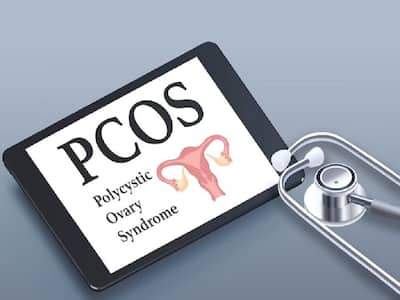
PCOS management is a multifaceted journey, and nutrition is an integral part of the road to progress.
Polycystic Ovary Syndrome or PCOS, a complex hormonal imbalance, affects millions of women worldwide, making it one of the most common hormonal disorders in the world. According to the World Health Organisation, 8-13% of the reproductive-aged women are affected by PCOS and out of them 70% of the cases remain undiagnosed. Additionally, one of the main reasons for lack of effective treatment and underdiagnosis of the imbalanced hormonal condition are the complex and are rooted towards multifactorial causes including genetic susceptibility, insulin resistance and ovarian dysfunction.
This complex hormonal imbalance can lead to a range of uncomfortable symptoms like irregular menstruation and mood swings, and long-term health complications including type 2 diabetes, hypertension, cardiovascular diseases, infertility, development of cysts on the ovaries and endometrial cancer. Though PCOS can’t be fully cured, these complexities can be regulated by embarking on the journey of PCOS management by making informed nutrition and dietary choices which are strategically aligned with the needs of the individuals with PCOS.
The PCOS-Nutrition Connection
Nutrition plays a vital role in PCOS Management as it directly influences insulin sensitivity, hormone regulation and inflammation. For instance, sometimes an individual’s cells do not respond effectively to insulin, leading to elevated blood sugar levels. This, in turn, triggers the production of excess insulin, which can stimulate androgen production and disrupt hormone balance, and further impact your physical and mental well being.
Additionally, managing blood sugar levels and promoting hormonal balance is the foundation of PCOS management which can be achieved by crafting a well balanced diet. The diet can be tailored to the specific needs of individuals with PCOS, which can lead to significant improvements in symptoms and overall health. Individuals can focus on a diet which is rich in fiber and nutritions by including fruits, vegetables, omega-3 fatty acids and whole grains to stabilize sugar levels and promote healthy digestion.
Macronutrient Balance: The key to Glycemic Control
Another important dietary aspect of managing PCOS is glycemic control, which is a combination of complex carbohydrates, lean proteins and healthy fats which helps in slowing down digestion and the absorption of glucose to prevent rapid blood sugar fluctuations. Moreover, including fiber rich foods like whole grains and vegetables will not only support digestion but also aid weight management, which can be another critical factor for individuals with PCOS.
Tailoring Nutrition for PCOS Management
Every individual’s response to various foods can vary depending upon the symptoms and response to various foods, further necessitating a tailored approach. For instance, some individuals may benefit from a lower carbohydrate intake, while others may thrive on a moderate-carbohydrate diet. Additionally, other external and internal factors like physical activity, stress management, sleep and metabolic health play a synergistic role in PCOS management. Considering these factors, and tailoring a holistic approach can guide the fine-tuning of dietary recommendations to ensure optimal results.
READ RELATED: The #1 Side Order at 7 Major Steakhouse Chains, According to Chefs
Way Forward
PCOS management is a multifaceted journey, and nutrition is an integral part of the road to progress. By embracing a customized nutrient rich and balanced diet, an individual can influence the complex symptoms of PCOS and take control of their health and enhance their quality of life. Remember, the plate is a canvas of nutrients and it is essential to make informed decisions to pave the way for PCOS Management.
The article is authored by Dr Aparna Bhanushali, Head of Growth & Scientific Support, HaystackAnalytics.
Total Wellness is now just a click away.
Follow us on
Don’t Miss Out on the Latest Updates.
Subscribe to Our Newsletter Today!
window.addEventListener(‘load’, (event) => {
$(‘#commentbtn’).on(“click”,function(){
(function(d, s, id) { var js, fjs = d.getElementsByTagName(s)[0]; if (d.getElementById(id)) return; js = d.createElement(s); js.id = id; js.src = “//connect.facebook.net/en_US/sdk.js#xfbml=1&version=v2.3”; fjs.parentNode.insertBefore(js, fjs);}(document, ‘script’, ‘facebook-jssdk’));
$(“.cmntbox”).toggle();
});
});










